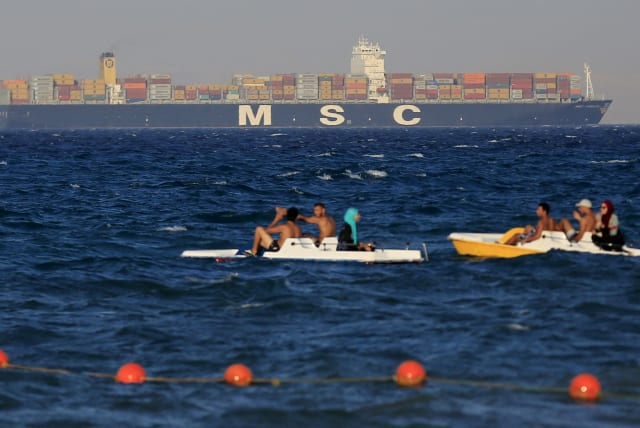Seafarers can refuse to sail through Red Sea as Houthis step up attacks -industry

Seafarers remain in the firing line, and have already signed agreements to receive double pay when entering the high-risk zones.
Seafarers have the right to refuse to sail on ships passing through the Red Sea in a new industry agreement as the situation escalates and further vessels are attacked by Yemen's Iran-aligned Houthis, a labor union and industry groups said on Friday.
The Houthis have targeted commercial ships with drones and missiles in the Red Sea since mid-November in what they describe as acts of solidarity with Palestinians against Israel in the Gaza war.
Seafarers remain in the firing line, and have already signed agreements to receive double pay when entering the high-risk zones.
New arrangements made for seafarers
In December, areas deemed warlike and high-risk were extended into the southern area of the Red Sea as part of negotiated arrangements between seafarers and commercial shipping companies, known as the International Bargaining Forum (IBF).
In the latest IBF arrangement seafarers must give seven days notice prior to entering the area and have the right to be repatriated to another location at the shipping company's cost, the International Transport Workers' Federation (ITF) and the Joint Negotiating Group, said in a statement.
It also includes compensation equal to two months basic wage.
"The decision to include seafarers’ right to refuse to sail was not a step taken lightly as this could negatively impact global trade, but the safety of the seafarers is paramount," the statement added.
"Sadly the conflict in the region has escalated, with further attacks on commercial vessels that are increasingly more sophisticated."
The ITF, which is the leading union organization for seafarers, has urged governments to secure the release of 25 mariners held by the Houthis after the militia hijacked their ship, the Galaxy Leader, on Nov. 19.
The Houthis have vowed to continue their attacks as long as Israel continues to commit "crimes" against Palestinians.
Some 12% of global trade is estimated to pass through the Red Sea.
Jerusalem Post Store
`; document.getElementById("linkPremium").innerHTML = cont; var divWithLink = document.getElementById("premium-link"); if (divWithLink !== null && divWithLink !== 'undefined') { divWithLink.style.border = "solid 1px #cb0f3e"; divWithLink.style.textAlign = "center"; divWithLink.style.marginBottom = "15px"; divWithLink.style.marginTop = "15px"; divWithLink.style.width = "100%"; divWithLink.style.backgroundColor = "#122952"; divWithLink.style.color = "#ffffff"; divWithLink.style.lineHeight = "1.5"; } } (function (v, i) { });

